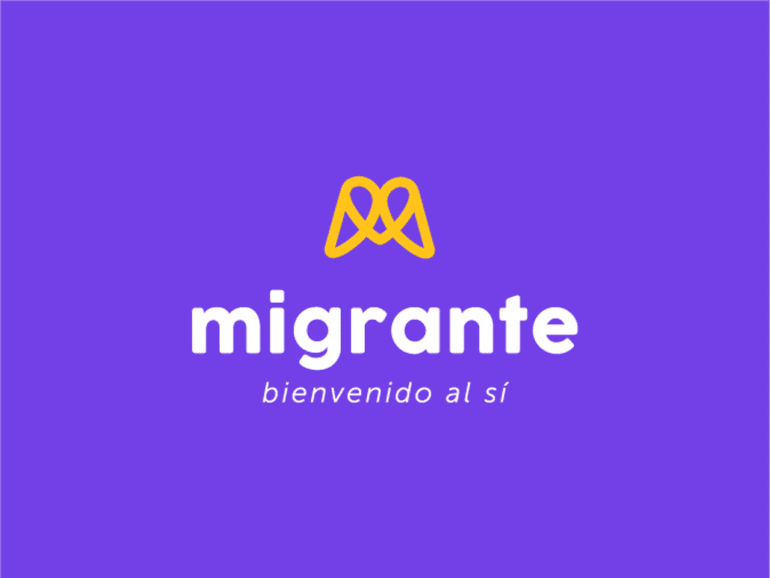During the pandemic, many immigrant workers in Latin America had little sources of income to rely on. Amid stringent lockdowns and business closures, many workers in the informal job market pivoted to delivery apps to make ends meet.
For those endeavors, having dependable transportation made a massive difference at the time. But in Latin America, a generalized lack of credit made things increasingly difficult for many. Some had few financial records that banks could rely on and insufficient funds to make a small working capital investment.
With that growing need in sight, Diego Fleischmann co-founded Migrante in 2018, a Chilean fintech aimed at providing financial services to immigrants and the underbanked in the Andean region.
Start in Chile
Initially, they started in Chile by offering credit for rental guarantees and then included loans to professionals such as immigrant doctors looking to validate their degrees in their destination country. In Chile, it can cost up to $3,000 to do so, while in the case of rent, landowners usually demand three to six months’ pay in advance.
“It didn’t make sense to have a doctor save money by working at Uber so he can take his exam. Better to give him credit outright,” Fleischmann, CEO, recalled during an interview with Fintech Nexus.

In the past decade, demographics in Latin America have been influenced by a confounding inflow of Venezuelans who left their home amid the economic crisis.
It is estimated that more than 5.5 million have emigrated, and not too many of them had robust financial backing.
Pivot to motorcycle financing
Then came the pandemic. And the possibility for Migrante to finance working tools to generate income with urban mobility and logistics services.
“We thought the pandemic was going to hit us, but migrants behaved very well,” Fleischmann told Fintech Nexus. “And they uncovered an opportunity for us: our clients were asking for credit to buy motorcycles to work. Many migrants do not get any kind of welfare, and the only job available at the time was deliveries.”
Eventually, the company pivoted to providing financing for motorcycles and created a marketplace for clients — immigrants and underbanked adults — to make a purchase online.
“Today, we are the market leader in Chile in motorcycle sales,” the CEO said. “We have 20% market share, 25,000 clients, and a $41 million loan portfolio.”
Funding
Earlier this year, the company raised $29 million in a series A-round and has tapped close to $80 million in debt.
“This gives us enough room to grow for the rest of this year and next year,” said Fleischmann, who co-founded the company with Ignacio Canals and Benjamin Izikson. The company is active in Peru and plans to expand into Mexico next month.
In May, the Inter-American Development Bank (IDB) announced it would provide a $1.5 million loan to the fintech to mitigate economic vulnerability and improve migrants’ access to loans and financial services.
The bank said the loan will contribute to the internationalization of Migrante and will benefit more than 330,000 migrants, mainly Venezuelans, in Chile and Peru.
Related:
Why did you pivot to motorcycle financing?
We started catering to immigrants, and then they took us to this new segment. In Latin America, the primary working tool of an immigrant is a motorcycle. Car financing is generally very well developed (by banks). But the motorcycle segment, on the contrary, has a shallow credit penetration. And whenever borrowers do get loans, rates are incredibly high. We are lowering the price and providing access to this financing. We want to become leaders in the region regarding motorcycle sales online and financing.
How do you become competitive?
First of all, we are a tech-born company, making customer acquisition costs much lower for us than for a bank. Secondly, we manage our (loan approval) decisions based on technology. This allows us to bring our risk down.
Now more than ever, technology allows you to reach customers directly and have much more information about them than a traditional bank.
Migrants quite often have no financial records in their destination country. How relevant is it to do a proper risk assessment?
Although it is not an accessible segment due to credit risk, it can be done well. Technology is an exceptional tool to add more input, and with intelligence and risk management, you can get to a reasonable default rate. We have been in this business for more than three years, and our behavior has been quite good, allowing us to continue growing.
In a credit business, you have to get four things right: reach your client, make a reasonable assessment, collect payments, and have a good recovery process. No matter how strong your collection is, it will not save you if you are not doing proper lending. The most important thing is to make a reasonable assessment in the first place.
What is the LatAm opportunity for lending fintechs?
Tremendously positive. It is the place to go out and innovate. It is a market with a meager bank penetration rate. The underbanked population is close to 70% of the adults in the region. In essence, it is the lack of credit that explains this condition. Banks have done a great job with the segment working in the formal economy. But there is a whole other group, which happens to be the vast majority of the population, which is not included. To that end, fintechs like Migrante have emerged to take advantage of this opportunity. We do not compete with banks. We go to places where they do not go.


